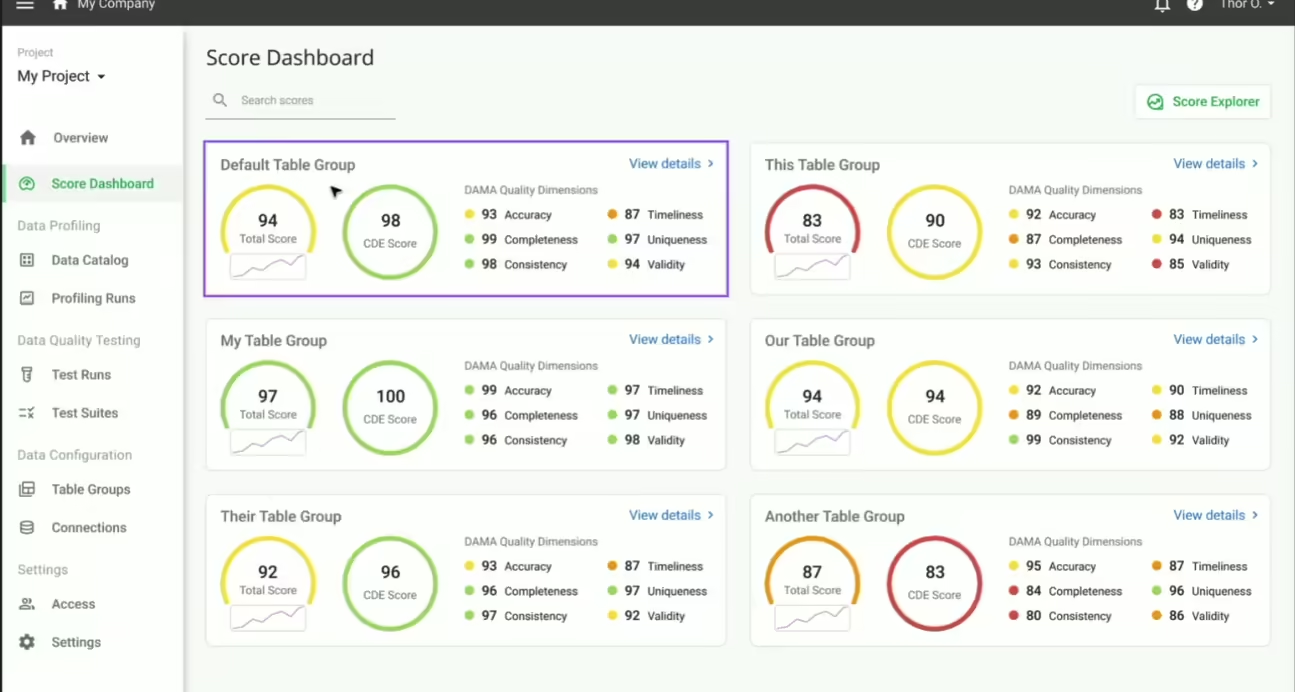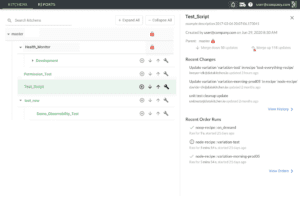The Terms and Conditions of a Data Contract are Automated Production Data Tests
A data contract is a formal agreement between two parties that defines the structure and format of data that will be exchanged between them. Data contracts are a new idea for data and analytic team development to ensure that data is transmitted accurately and consistently between different systems or teams.
One of the primary benefits of using data contracts is that they help to ensure data integrity and compatibility. By defining the structure and format of the data upfront, both parties can be confident that the data will be transmitted and received expectedly. This can help prevent data loss or corruption, which can seriously affect businesses or organizations.
Another benefit of data contracts is that they allow for easier maintenance and updates. Because the structure and format of the data are defined in the contract, it is easier for developers to make changes or updates to the data without breaking compatibility with other systems. This can save time and effort, as developers do not need to spend as much time troubleshooting issues related to data transmission.
Data contracts can also improve communication and collaboration between different teams or departments. By defining the data that will be exchanged, both parties can better understand the needs and requirements of the other, leading to more effective communication and collaboration.
Several data contracts can be used in data and analytic team development. One common type is the schema, which defines the structure and format of data using a specific markup language such as XML or JSON. Another type of data contract is the service contract, which defines the operations performed by a particular service, such as a SQL query or API.

The best data contract is an automated production data test. It defines the terms and conditions of the data contract. Data testing plays a critical role in the process of implementing data contracts. Data contracts define the structure and format of data exchanged between two parties. Data testing ensures that the data is transmitted and received accurately and consistently.
Several different types of quality control checks can be used to ensure the accuracy and reliability of data in a production environment. Some common types of quality control checks for production data include:
- Data validation: This check is used to verify that the data being processed or stored in a production system is accurate and conforms to the required standards and specifications. Data validation can involve checking the data for errors, inconsistencies, or missing values and can be performed using automated tools or manual processes.
- Data integrity checks ensure that the data being processed or stored in a production system is complete and accurate. Data integrity checks can verify that the data is consistent with other sources or systems and that it has not been tampered with or corrupted in any way.
- Data quality checks: These checks ensure that the data being processed or stored in a production system is high quality and meets the required standards. Data quality checks can involve verifying the data’s accuracy, completeness, and consistency and checking for errors or issues that may affect the data’s usability or value.
- Statistical process control (SPC) checks are quality control methods that use statistical analysis to monitor and control processes to ensure that they operate within specified limits. In the context of data systems, SPC checks can be used to monitor and control the quality of data being processed or stored in the system. SPC checks involve collecting data from the process being monitored and using statistical techniques to analyze the data to identify trends, patterns, or deviations from expected values. This can help identify any issues or problems with the process that may need to be addressed to improve the data quality.
Overall, the role of data testing in data contracts is to ensure that the data is transmitted and received accurately and consistently according to the structure and format defined in the contract. By performing thorough data testing, organizations can be confident that their data exchange processes are reliable and efficient and comply with the data contract terms.
Data contracts are a valuable new tool in data and analytic team development. They help ensure data integrity and compatibility, facilitate easier maintenance and updates, and improve communication and collaboration between different teams or departments. By defining the structure and format of the data upfront, both parties can be confident that the data will be transmitted and received in the expected manner, which can help to prevent issues and improve the overall efficiency of the data exchange process.
Data tests are enforcement of the terms and conditions in your data contracts!






